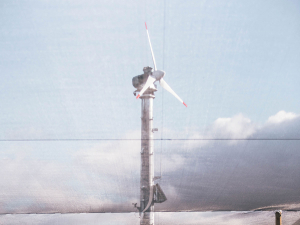2050 climate projections seemed a lifetime away, and here in New Zealand, we were more concerned with a bumper yield and the global financial crisis. Climate change was a distant, if not invisible, concern.
Fast forward to 2022, and no one was questioning the emission component of climate change. Today we have become acutely aware that climate change is influencing grape production, having experienced some of the warmest summers and warming growing seasns on record over the past three to four years. Now 2050 is just around the corner, especially if we think of a lifetime of a new vineyard or if we are replanting.
So what can we do now to look after the future of the wine industry in the context of climate change? We need to take a three-pronged approach.
First, it is critical that we understand the impacts. The elephant in the room is that we if do not know what the future may potentially look like, we are ill placed to adapt. We may be tempted to ignore this step, as we cannot immediately 'do something' in the vineyard or winery, like we can with adaptation and mitigation.
But knowing the magnitude of potential change is critical for successful adaptation. Research that investigates how grapes may respond to climate change, not just characterising climate change, is essential to illuminate the potential different futures we may face. For example, as part of recent research I was involved in, we found that by 2050 veraison of Marlborough Sauvignon Blanc would advance by almost two weeks under the worst-case climate scenario, where the temperatures are projected to be 1.5°C warmer mid-century, and 4°C by the end of the century.
Knowing this advance in the start of the ripening period means we can now assess how to adapt. If our aim was for the timing of the start of ripening period to not change in the future, we need an adaptation strategy that can create a two-week delay in veraison. Based on current knowledge trimming (reducing leaf area) is a known adaptation strategy to delay ripening but this only offers a week to 10-day in veraison. Therefore, we need to look seriously at our toolbox for adaptation if we are to successfully buffer the projected impacts.
This leads us to the second key point in our response to climate change - we need to start experimenting with how we may adapt. Drough resistant rootstocks, efficient water use in vineyards, management practices to delay phenology and ripening, and alternate varieties are all examples of easily accessible tools in our toolbox. The research and knowledge is out there, it is about making a start now in our vineyards.
The third key point is looking at our carbon footprint. Anything we can do in this space is going to contribute positively to the situation. And with rising diesel prices, there is no better time than now to get serious about it. We are over-reliant on fossil fuels for our production practices, and it may require a rethink to be able to adapt to a fossil fuel free production system in the future.
Like any good farmer we may learn a thing or two by looking over the fence and talking to our neighbour. Consider Aotearoa's first fossil fuel free farm, the Forest Lodge cherry orchard in Central Otago, founded by Mike and Rebecca Casey. This orchard is mitigating emissions through fossil fuel free practices and without any carbon offsetting. Talking with the owners, the payback and benefits have already outweighed the initial capital to achieve this.
While there may be some place for carbon sequestration as the tech comes online for us to move away from fossil fuel use, we may be able to take lessons learnt from other producers such as Forest Lodge on how to reduce carbon emissions by eliminating sources of greenhouse gas contributions, rather than relying heavily on carbon offsetting.
So as I write this in 2022, I wonder where we will be in another 20 years' time? Having recently attended Grape Days, I can see we are already in a climate of change, with the industry making great steps towards reducing emissions. I cannot wait to see how this evolves. With the wine industry having a goal to be carbon neutral by 2050, we have a real opportunity to be New Zealand, if not world, leaders if this space. If a single cherry orchard can do it, why can't we as industry?
Additional Reading
Ausseil, A-G. E., Law, R.M., Parker, A.K., Teixeira, E.I., and Sood, A. 2021. Projected Wine Grape cultivar Shifts Due to Climate Change in New Zealand. Frontiers in Plant Science, 12, 618039. doi: 10.3389/fpls.2021.618039.
Parker, A. K., García de Cortázar-Atauri, I., Trought, M.C.T., Destrac, A., Agnew, R., Sturman, A., & van Leeuwen, C. 2020. Adaptation to climate change by determining grapevine cultivar differences using temperature-based phenology models. OENO One 2020, 4, 955-974. doi:10.20870/oeno-one.2020.54.4.3861.
van Leeuwen, C., Destrac-Irvine, A., Dubernet, M., Duchêne, E., Gowdy, M., Marguerit, E., Pieri, P., Parker, A. K., de Rességuier, L., & Ollat, N. (2019). An update on the impact of climate change in viticulture and potential adaptations. Agronomy, 9(9). doi:10.3390/agronomy9090514.














